21.08.2022 - 3 min read
Interview of Ryan Lay
Ryan Lay got involved with Skate After School as a community project with his friends Tim Ward and Bobby Green a little over a decade ago. They are providing quality after school programs and mentorship opportunities to underfunded schools and families)
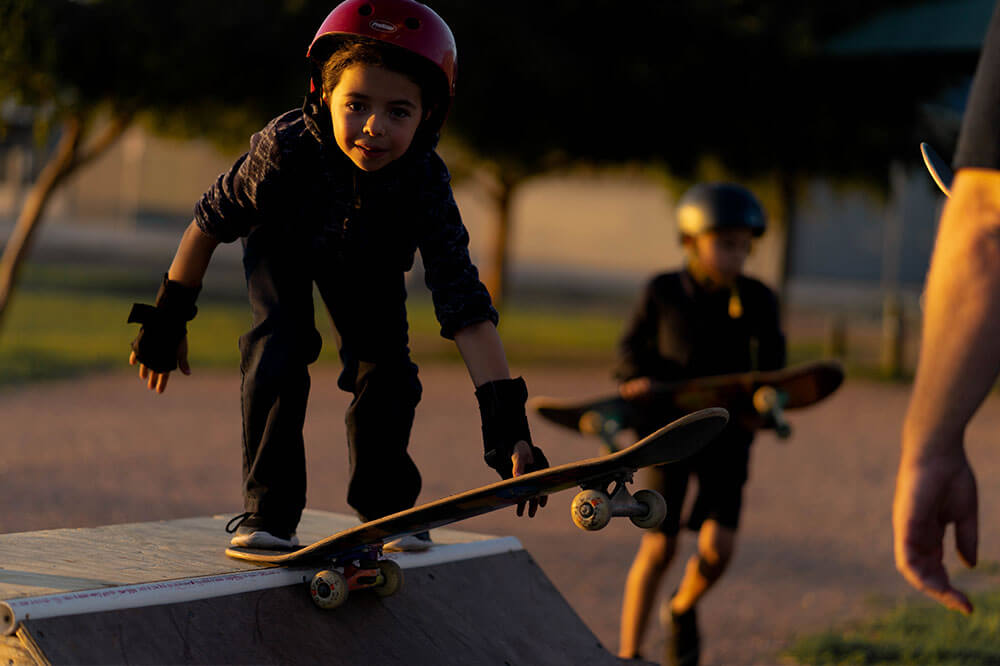
Pictures by Skate After School
We provide a fully mobile, on-site skateboard program that is free of cost to the students. The students we work with are 2nd-6th grade and attend a Title 1 elementary school (high percentage of low income families).
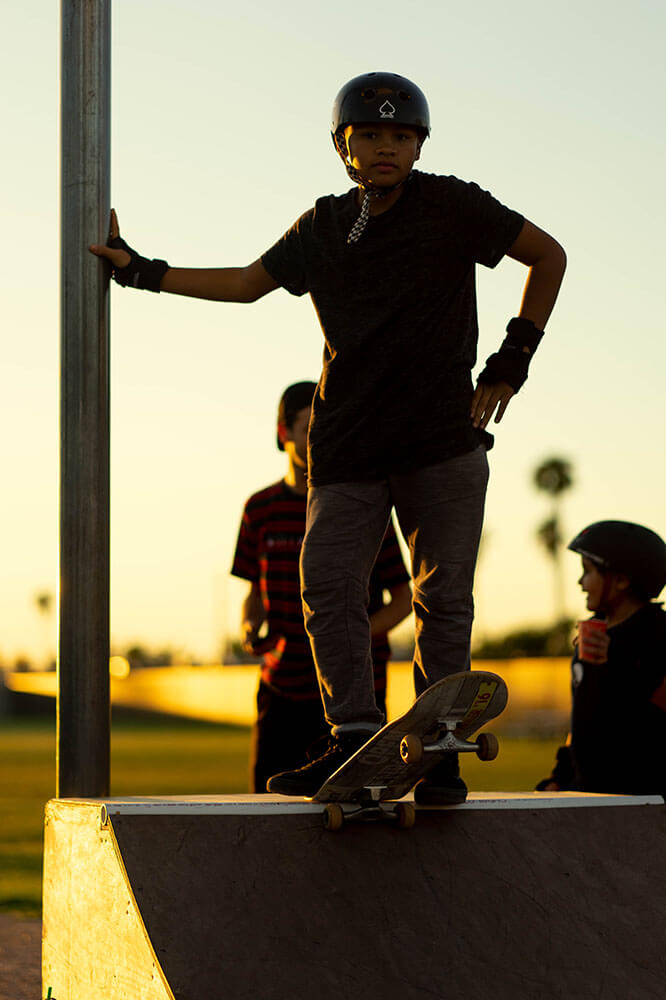
Pictures by Skate After School
Our programs are on a rotating schedule, serving different schools M-F. Financial stability is always going to be a bit rocky, especially when you start as a grassroots organisation with little connection to a healthier donor base.We have two full-time employees and anywhere between 10-20 volunteers who fill in the gaps at our programs.
I think for the kids they are looking for a good time, consistent adults and just a place to let off steam after the school day. We try not to focus too much on skateboard coaching and instead favor an approach of guided instruction, kind of like a session.
Skateboarding, like so many other sports, can be a super powerful tool to reach kids. I think some of our volunteers and people involved in the programs are often seen as an older friend instead of an authority figure, and we might have some luck reaching those kids in a way that a teacher or similar adult figure can’t.
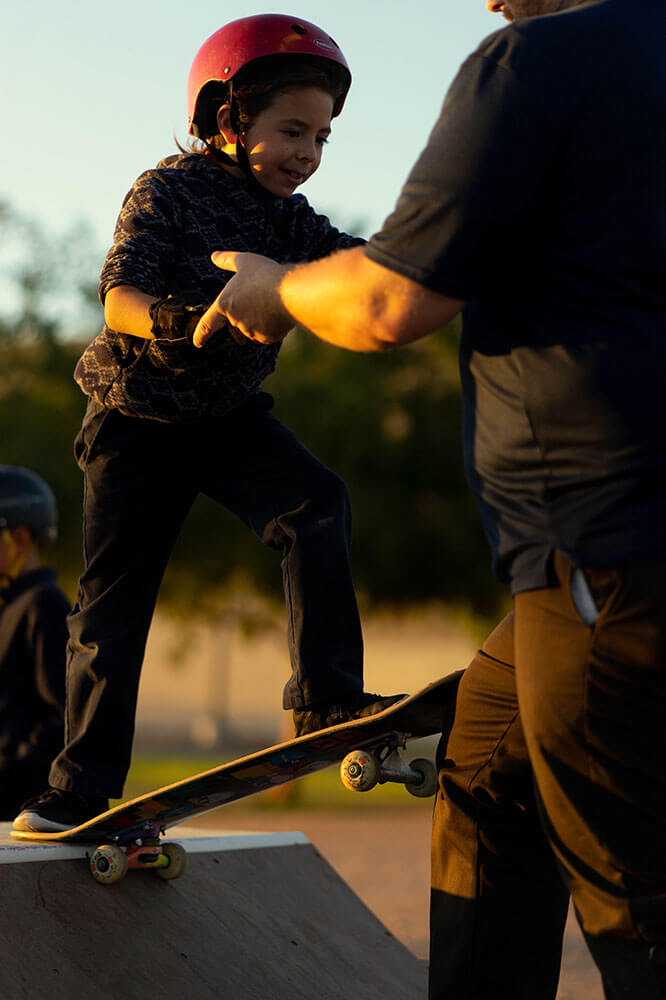
Pictures by Skate After School
We really try to keep our program fun and loose. Weather wise, we have to adapt to keep the kids stoked and prevent burnout, which can definitely happen in the summer months.
I think the schools have been doing a great job in learning that there are a lot of new programs and sports out there that speak to kids in a way traditional sports just don't. We're seeing a lot of success in sports that aren't necessarily team sports but have a community component – rock climibing, yoga, skateboarding, etc.
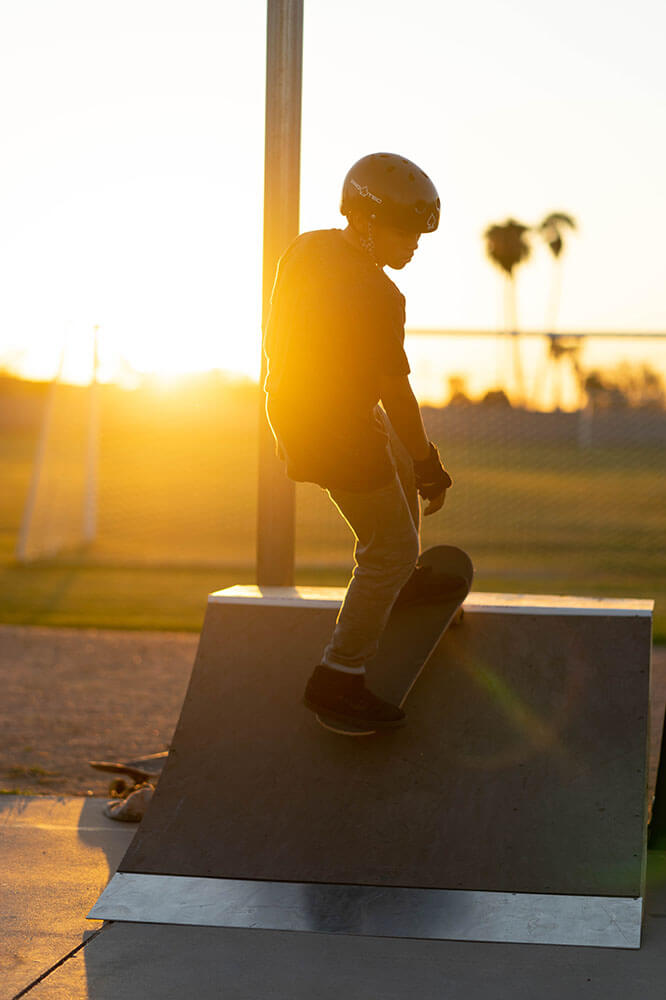
Pictures by Skate After School
The Arizona Lottery reached out to us about working on a big project together and we knew we wanted to build a skate plaza. We only see our kids a little over an hour a day at most and for all those other hours of the week we knew they needed a place to take what they learn at SAS outside of the program.
We have a few contacts at the city and we just approached them with a proposal – it definitely helps that we had private funding for the park and that we were already directly engaged with the local community. Patience is definitely key to working with local government, but at the end of the day we all want to see our communities improved and it'll get done.
We wanted to build a park that was, above anything, accessible to our kids. We had some funding constraints but in all honesty we just wanted to keep the space really open and welcoming, as opposed to intimidating. We paired down all of the obstacles and built everything just a little lower than you'd see at most parks. What we've seen as well is that expert skaters are also happy to skate small obstacles, so everyone seems to be happy!
I think making sure that the community wants what you're offering. We were diligent about garnering community support for this park and ensuring the local residents and their kids would be excited about the space. From there, I think it's on the adults to provide good stewardship of the space, be solid role models and ensure the space continues to be welcoming. We'd love to try and host some different types of events at the park once the heat dies down a little bit.
I think this is a type of magic that's pretty hard to decode. For us, fostering healthy spaces and leading by example seems to have worked pretty well. We encourage and reward the kids through stickers when they help a fellow student up or when someone lands a new trick, but it also comes naturally to them!
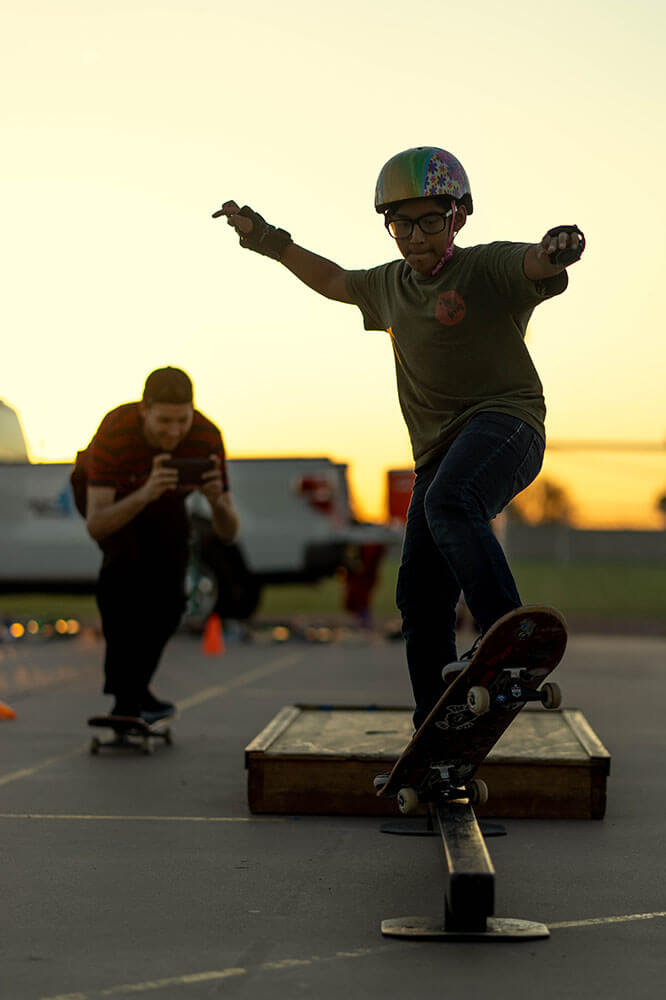
Pictures by Skate After School

Picture by Skate After School

Picture by Skate After School

Picture by Skate After School

Picture by Skate After School